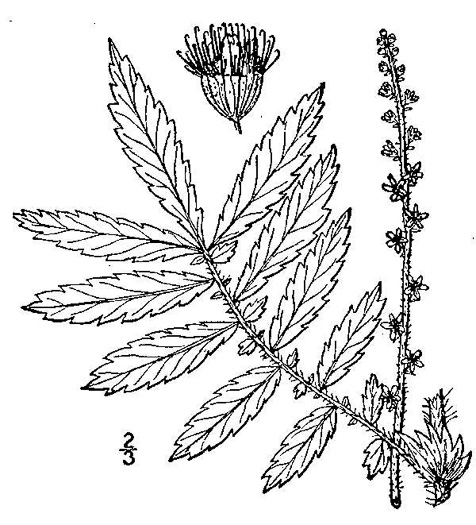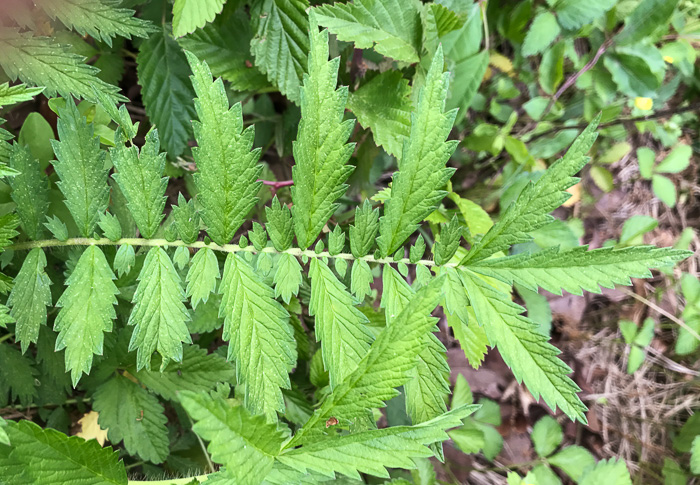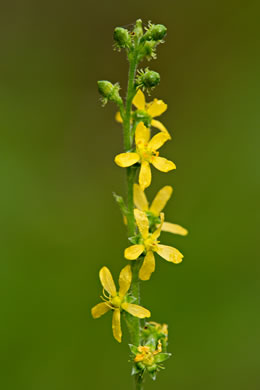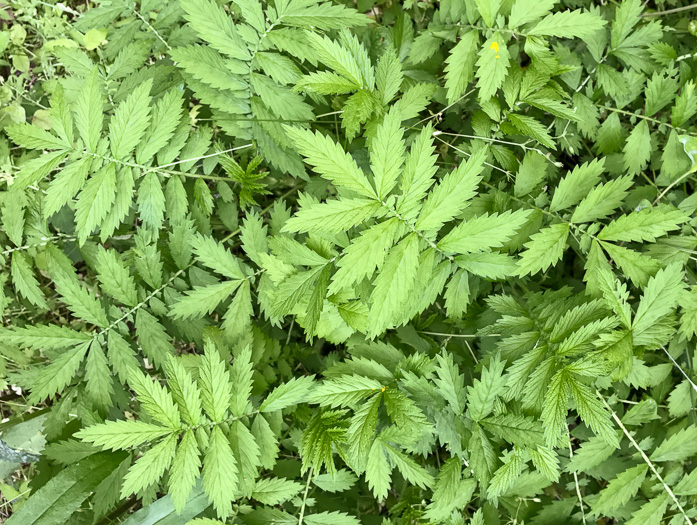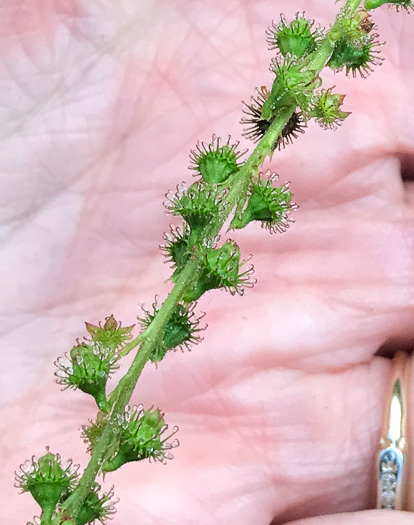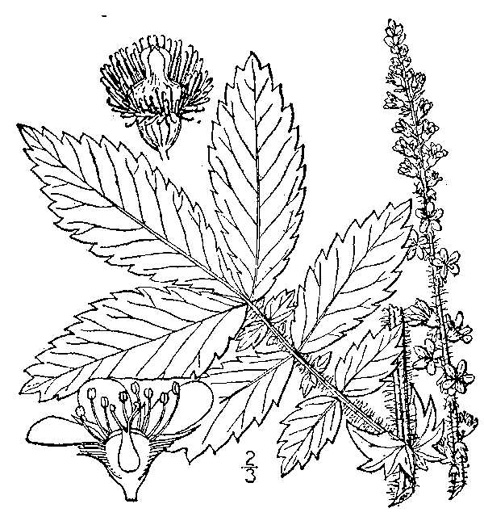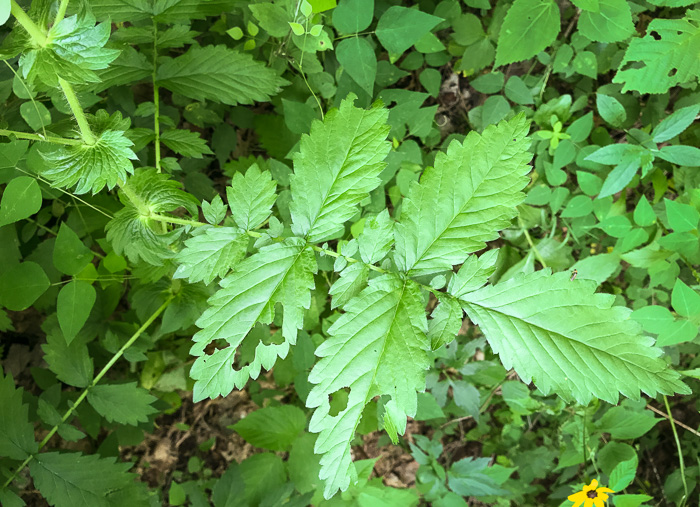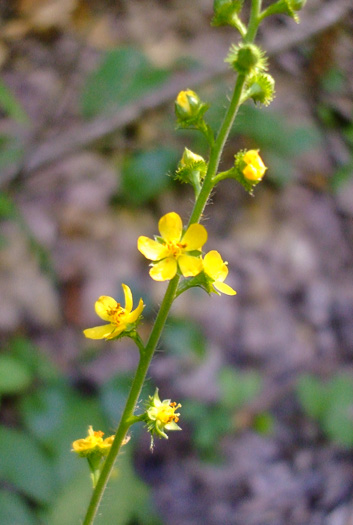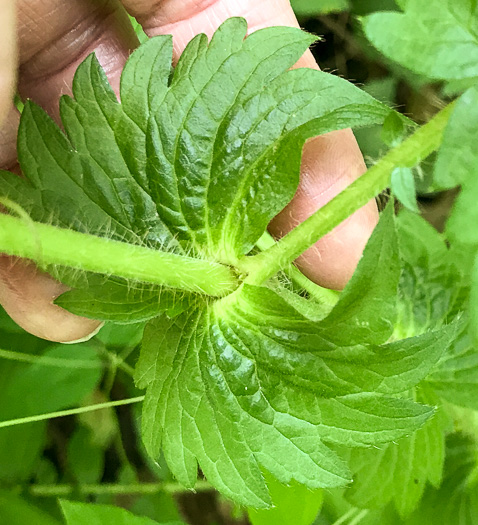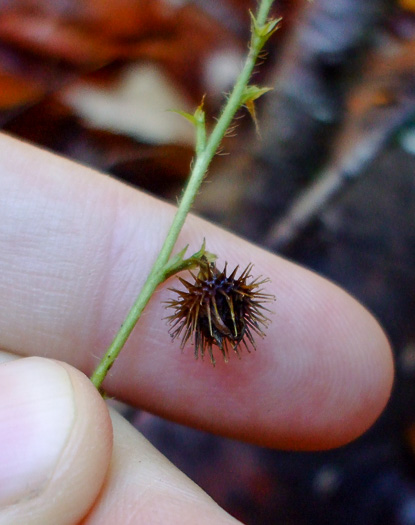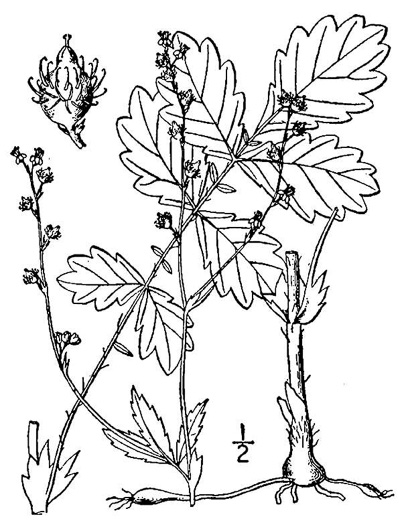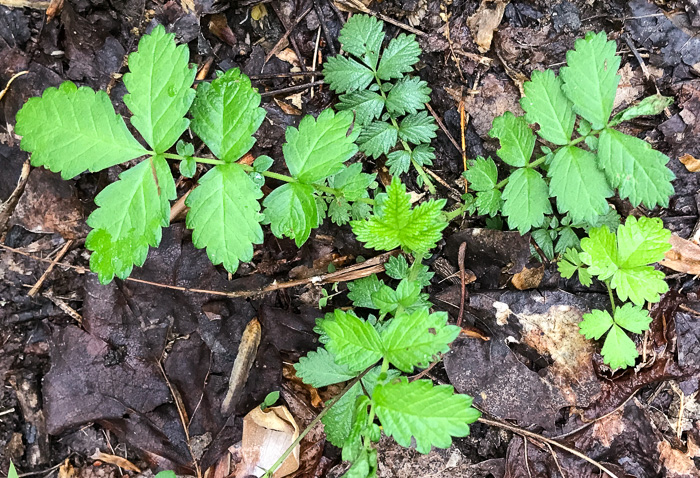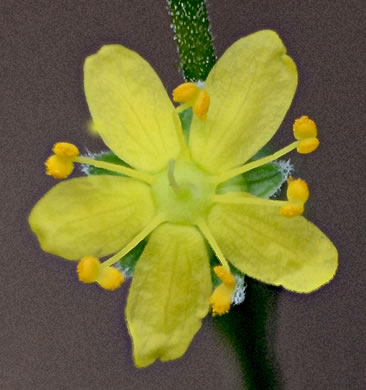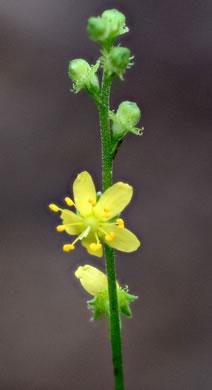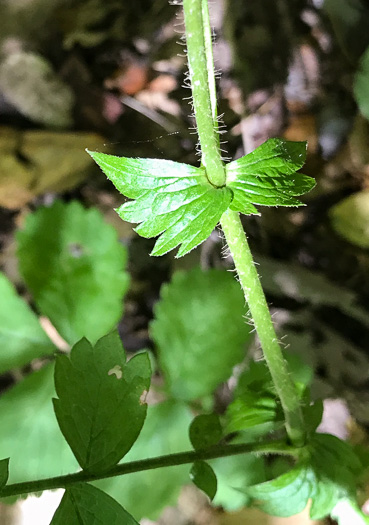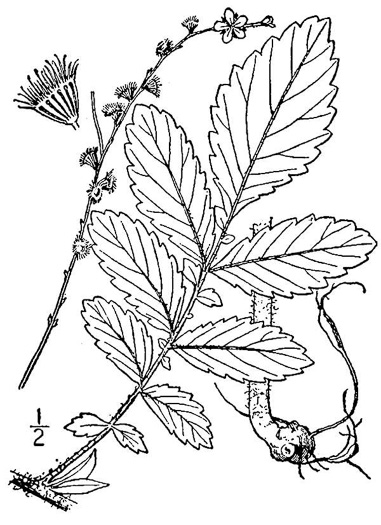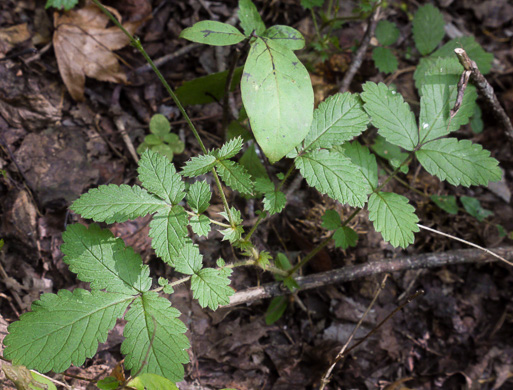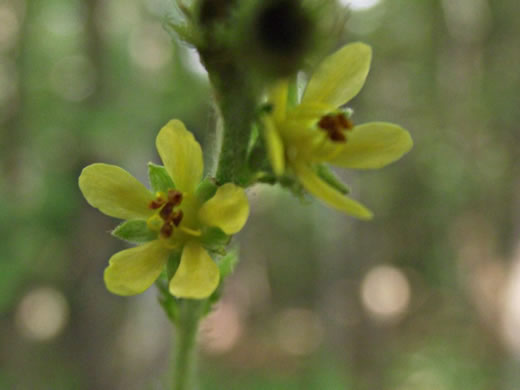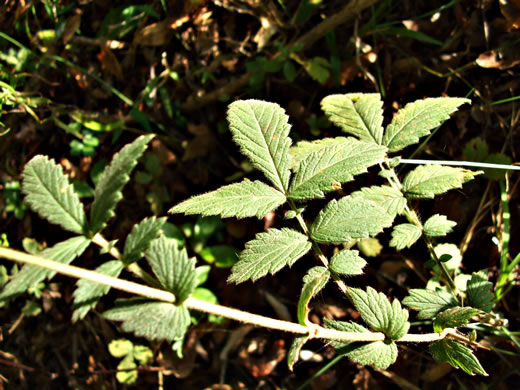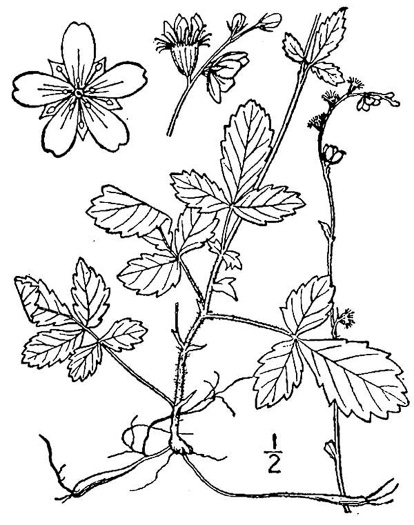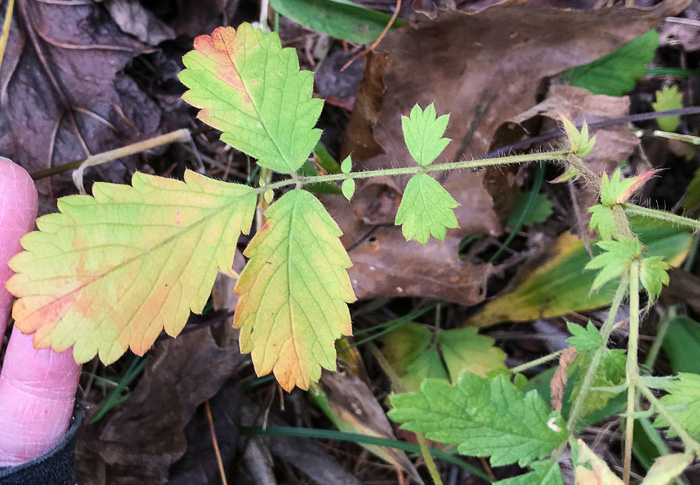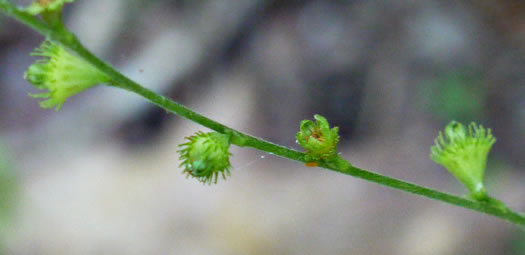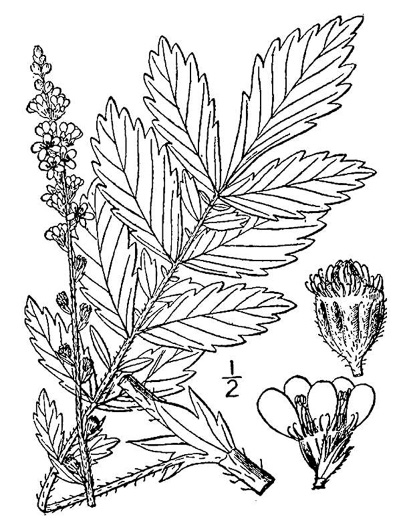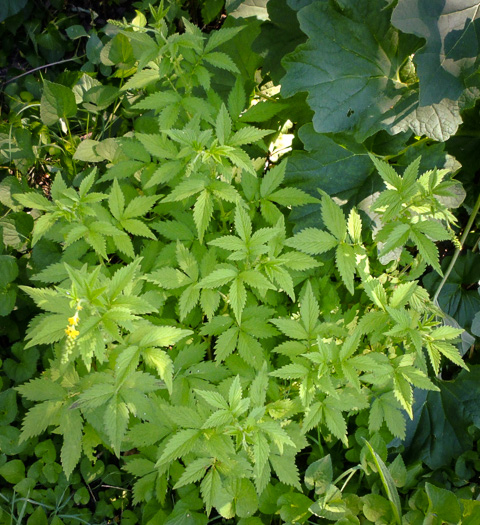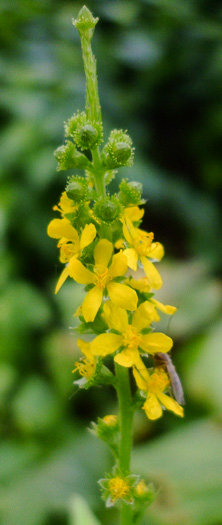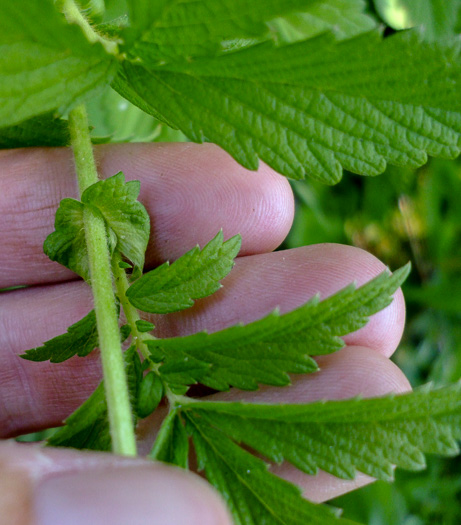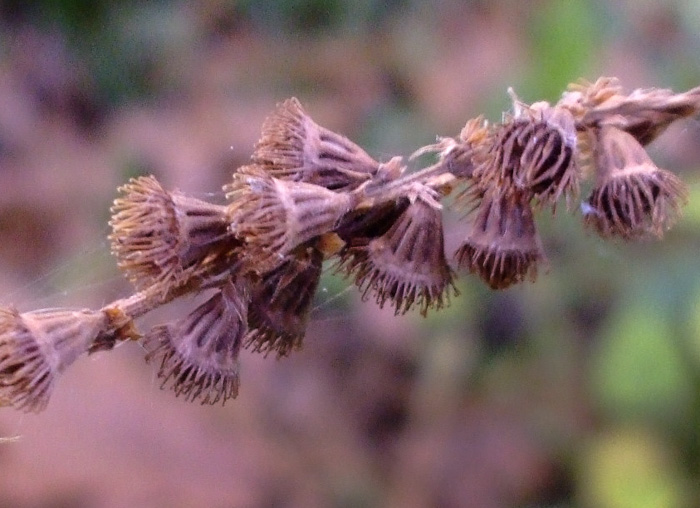Hovering over an image will enlarge it and point out features (works better on desktop than on mobile).
![]() A camera indicates there are pictures.
A camera indicates there are pictures.
![]() A speaker indicates that a botanical name is pronounced.
A speaker indicates that a botanical name is pronounced.
![]() A plus sign after a Latin name indicates that the species is further divided into varieties or subspecies.
A plus sign after a Latin name indicates that the species is further divided into varieties or subspecies.
Most habitat and range descriptions were obtained from Weakley's Flora.
Your search found 7 taxa.
Clicking ![]() one takes you to more information and/or pictures.
one takes you to more information and/or pictures.

Common Name: Pineland Agrimony
Weakley's Flora: (4/24/22) Agrimonia incisa FAMILY: Rosaceae
SYNONYMOUS WITH PLANTS National Database: Agrimonia incisa FAMILY: Rosaceae
SYNONYMOUS WITH Vascular Flora of the Carolinas (Radford, Ahles, & Bell, 1968): Agrimonia incisa 097-09-001 FAMILY: Rosaceae
Habitat: Pinelands, disturbed areas associated with pinelands
Rare
Native to South Carolina & Georgia & possibly North Carolina

![]()
![]() Common Name:
Southern Agrimony, Small-flowered Agrimony, Harvestlice
Common Name:
Southern Agrimony, Small-flowered Agrimony, Harvestlice
Weakley's Flora: (4/24/22) Agrimonia parviflora FAMILY: Rosaceae
SYNONYMOUS WITH PLANTS National Database: Agrimonia parviflora FAMILY: Rosaceae
SYNONYMOUS WITH Vascular Flora of the Carolinas (Radford, Ahles, & Bell, 1968): Agrimonia parviflora 097-09-002 FAMILY: Rosaceae
Habitat: Marshes, bottomland forests, wet pastures
Common in Carolina Mountains & Carolina Piedmont, uncommon in GA Mountains & GA Piedmont (rare in Coastal Plain)
Native to the Carolinas & Georgia

![]()
![]() Common Name:
Common Agrimony, Swamp Agrimony
Common Name:
Common Agrimony, Swamp Agrimony
Weakley's Flora: (4/24/22) Agrimonia gryposepala FAMILY: Rosaceae
SYNONYMOUS WITH PLANTS National Database: Agrimonia gryposepala FAMILY: Rosaceae
SYNONYMOUS WITH Vascular Flora of the Carolinas (Radford, Ahles, & Bell, 1968): Agrimonia gryposepala 097-09-003 FAMILY: Rosaceae
Habitat: Mesic forests, thickets, marshes, bogs, wet meadows, wet forests, especially in base-rich substrates
Common in NC Mountains (rare elsewhere in GA-NC-SC)
Native to the Carolinas & Georgia

![]() Common Name:
Woodland Agrimony
Common Name:
Woodland Agrimony
Weakley's Flora: (4/24/22) Agrimonia rostellata FAMILY: Rosaceae
SYNONYMOUS WITH PLANTS National Database: Agrimonia rostellata FAMILY: Rosaceae
SYNONYMOUS WITH Vascular Flora of the Carolinas (Radford, Ahles, & Bell, 1968): Agrimonia rostellata 097-09-004 FAMILY: Rosaceae
Habitat: Moist to wet forests and woodlands, especially in base-rich soils
Common (rare in Coastal Plain)
Native to the Carolinas & Georgia

![]()
![]() Common Name:
Downy Agrimony
Common Name:
Downy Agrimony
Weakley's Flora: (4/24/22) Agrimonia pubescens FAMILY: Rosaceae
SYNONYMOUS WITH PLANTS National Database: Agrimonia pubescens FAMILY: Rosaceae
SYNONYMOUS WITH Vascular Flora of the Carolinas (Radford, Ahles, & Bell, 1968): Agrimonia pubescens var. pubescens 097-09-005a FAMILY: Rosaceae
Habitat: Dry to moist forests and woodlands, especially in base-rich soils
Common (rare in Coastal Plain)
Native to the Carolinas & Georgia

![]() Common Name:
Low Agrimony, Small-fruited Agrimony
Common Name:
Low Agrimony, Small-fruited Agrimony
Weakley's Flora: (4/24/22) Agrimonia microcarpa FAMILY: Rosaceae
SYNONYMOUS WITH PLANTS National Database: Agrimonia microcarpa FAMILY: Rosaceae
SYNONYMOUS WITH Vascular Flora of the Carolinas (Radford, Ahles, & Bell, 1968): Agrimonia pubescens var. microcarpa 097-09-005b FAMILY: Rosaceae
Habitat: Dry to moist forests and woodlands
Uncommon (rare in NC Mountains)
Native to the Carolinas & Georgia

![]() Common Name:
Roadside Agrimony
Common Name:
Roadside Agrimony
Weakley's Flora: (4/24/22) Agrimonia striata FAMILY: Rosaceae
SYNONYMOUS WITH PLANTS National Database: Agrimonia striata FAMILY: Rosaceae
Habitat: Rich forests, floodplains, fields
Native: north & west of the Carolinas & Georgia
Your search found 7 taxa. You are on page PAGE 1 out of 1 pages.

